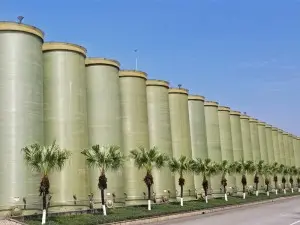
-
 Afrikaans
Afrikaans -
 Albanian
Albanian -
 Amharic
Amharic -
 Arabic
Arabic -
 Armenian
Armenian -
 Azerbaijani
Azerbaijani -
 Basque
Basque -
 Belarusian
Belarusian -
 Bengali
Bengali -
 Bosnian
Bosnian -
 Bulgarian
Bulgarian -
 Catalan
Catalan -
 Cebuano
Cebuano -
 China
China -
 China (Taiwan)
China (Taiwan) -
 Corsican
Corsican -
 Croatian
Croatian -
 Czech
Czech -
 Danish
Danish -
 Dutch
Dutch -
 English
English -
 Esperanto
Esperanto -
 Estonian
Estonian -
 Finnish
Finnish -
 French
French -
 Frisian
Frisian -
 Galician
Galician -
 Georgian
Georgian -
 German
German -
 Greek
Greek -
 Gujarati
Gujarati -
 Haitian Creole
Haitian Creole -
 hausa
hausa -
 hawaiian
hawaiian -
 Hebrew
Hebrew -
 Hindi
Hindi -
 Miao
Miao -
 Hungarian
Hungarian -
 Icelandic
Icelandic -
 igbo
igbo -
 Indonesian
Indonesian -
 irish
irish -
 Italian
Italian -
 Japanese
Japanese -
 Javanese
Javanese -
 Kannada
Kannada -
 kazakh
kazakh -
 Khmer
Khmer -
 Rwandese
Rwandese -
 Korean
Korean -
 Kurdish
Kurdish -
 Kyrgyz
Kyrgyz -
 Lao
Lao -
 Latin
Latin -
 Latvian
Latvian -
 Lithuanian
Lithuanian -
 Luxembourgish
Luxembourgish -
 Macedonian
Macedonian -
 Malgashi
Malgashi -
 Malay
Malay -
 Malayalam
Malayalam -
 Maltese
Maltese -
 Maori
Maori -
 Marathi
Marathi -
 Mongolian
Mongolian -
 Myanmar
Myanmar -
 Nepali
Nepali -
 Norwegian
Norwegian -
 Norwegian
Norwegian -
 Occitan
Occitan -
 Pashto
Pashto -
 Persian
Persian -
 Polish
Polish -
 Portuguese
Portuguese -
 Punjabi
Punjabi -
 Romanian
Romanian -
 Russian
Russian -
 Samoan
Samoan -
 Scottish Gaelic
Scottish Gaelic -
 Serbian
Serbian -
 Sesotho
Sesotho -
 Shona
Shona -
 Sindhi
Sindhi -
 Sinhala
Sinhala -
 Slovak
Slovak -
 Slovenian
Slovenian -
 Somali
Somali -
 Spanish
Spanish -
 Sundanese
Sundanese -
 Swahili
Swahili -
 Swedish
Swedish -
 Tagalog
Tagalog -
 Tajik
Tajik -
 Tamil
Tamil -
 Tatar
Tatar -
 Telugu
Telugu -
 Thai
Thai -
 Turkish
Turkish -
 Turkmen
Turkmen -
 Ukrainian
Ukrainian -
 Urdu
Urdu -
 Uighur
Uighur -
 Uzbek
Uzbek -
 Vietnamese
Vietnamese -
 Welsh
Welsh -
 Bantu
Bantu -
 Yiddish
Yiddish -
 Yoruba
Yoruba -
 Zulu
Zulu
frp desalination pipes and fittings for efficient water treatment
Efficient Water Treatment The Role of FRP Desalination Pipes and Fittings
In an era of escalating water scarcity and the pressing need for sustainable alternatives, the importance of efficient water treatment systems cannot be overstated. One innovative solution that has gained significant traction in recent years is the use of Fiberglass Reinforced Plastic (FRP) pipes and fittings in desalination processes. This advanced material offers numerous benefits, making it an ideal choice for the challenges associated with water treatment.
FRP pipes are renowned for their exceptional strength-to-weight ratio, which allows for easy handling and installation. They are manufactured using a combination of glass fibers and resin, resulting in a product that is not only lightweight but also incredibly durable. This durability is critical in desalination plants, where pipes must withstand the corrosive effects of saltwater and the high pressures involved in the treatment process. Traditional materials, such as steel or PVC, often succumb to wear and corrosion, leading to frequent maintenance and replacements. In contrast, FRP provides a long-lasting solution, reducing operational costs and downtime.
Another significant advantage of FRP pipes is their resistance to extreme temperatures and chemical exposure. In desalination systems, the water being processed can undergo wide temperature variations and contains various chemicals used in treatment. FRP is engineered to endure such conditions without losing structural integrity, which enhances the reliability of the entire water treatment system. This resilience translates to improved efficiency in desalination processes, ultimately contributing to the production of high-quality freshwater.
frp desalination pipes and fittings for efficient water treatment

Moreover, FRP fittings play a crucial role in ensuring the seamless integration of the piping system. These fittings maintain the same resistance to corrosion and pressure as the pipes themselves, creating a unified and robust system. Properly designed FRP fittings reduce the risk of leaks and failures, which can compromise water quality and disrupt operations. With a well-constructed FRP system, desalination plants can operate more smoothly and effectively, thereby boosting overall productivity.
Environmental considerations also underscore the significance of using FRP in desalination projects. The lightweight nature of FRP reduces the carbon footprint associated with transportation and installation. Additionally, the long lifespan of these materials decreases the frequency of replacements, further minimizing environmental impact. As the world continues to prioritize sustainability, adopting FRP technology aligns well with the goals of reducing waste and conserving natural resources.
In conclusion, FRP desalination pipes and fittings represent a cutting-edge solution for the efficient treatment of water in increasingly challenging conditions. Their durability, chemical resistance, and lightweight nature contribute to more reliable and cost-effective desalination processes. As we strive to meet global water demands while safeguarding the environment, the integration of FRP technology stands out as a promising avenue toward sustainable water management. The adoption of these systems not only enhances operational efficiency but also plays a vital role in addressing the critical issue of freshwater scarcity worldwide.
Latest news
-
Exploring the Benefits of Top Hammer Drifter Rods for Enhanced Drilling PerformanceNewsJun.10,2025
-
High-Precision Fiberglass Winding Machine for GRP/FRP Pipe Production – Reliable & Efficient SolutionsNewsJun.10,2025
-
FRP Pipes & Fittings for Shipbuilding - Corrosion-Resistant & LightweightNewsJun.09,2025
-
Premium FRP Flooring Solutions Durable & Slip-ResistantNewsJun.09,2025
-
Premium Fiberglass Rectangular Tanks Durable & Lightweight SolutionNewsJun.09,2025
-
Tapered Drill String Design Guide Durable Performance & UsesNewsJun.09,2025









